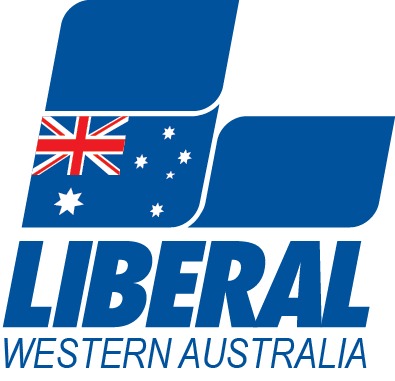THE HON PETER DUTTON MP
LEADER OF THE OPPOSITION
THE HON DAVID LITTLEPROUD MP
LEADER OF THE NATIONALS
MR TED O’BRIEN MP
SHADOW MINISTER FOR CLIMATE CHANGE AND ENERGY
JOINT MEDIA RELEASE
AUSTRALIA’S ENERGY FUTURE
Every Australian deserves and should expect access to cheaper, cleaner and consistent electricity. But under Labor, this isn’t happening.
Right now, in households and businesses around the country, Labor’s expensive renewables-only approach is failing.
The Government is now talking about a 65 to 75 per cent emissions reduction target by 2035, but won’t release modelling and won’t tell us how much higher power prices will go up.
Power bills have already increased by up to $1,000 for many Australians, when they were promised a $275 cut. And Labor’s climate target of 43% emissions reduction by 2030 has become unachievable.
The Coalition believes Australia must have a balanced energy mix to deliver cheaper, cleaner and consistent 24/7 electricity. 90 per cent of baseload electricity, predominantly coal fired power stations, is coming to the end of life over the next decade.
Nuclear energy for Australia is an idea whose time has come.
Today, we are announcing that a future Federal Coalition Government will introduce zero-emissions nuclear energy in Australia, which has proven to get electricity prices and emissions down all over the world, to work in partnership with renewable energy and gas as part of a balanced energy mix.
And today, we announce seven locations, located at a power station that has closed or is scheduled to close, where we propose to build zero-emissions nuclear power plants:
• Liddell Power Station, New South Wales
• Mount Piper Power Station, New South Wales
• Loy Yang Power Stations, Victoria
• Tarong Power Station, Queensland
• Callide Power Station, Queensland
• Northern Power Station, South Australia (SMR only)
• Muja Power Station, Western Australia (SMR only)
Each of these locations offer important technical attributes needed for a zero-emissions nuclear plant, including cooling water capacity and transmission infrastructure, that is, we can use the existing poles and wires, along with a local community which has a skilled workforce.
A key advantage of modern zero-emissions nuclear plants is they can be plugged into existing grids. This means they can effectively replace retired or retiring coal plants and avoid much of the new spending needed for Labor’s ‘renewables-only’ system, including new transmission poles and wires. All of which will be passed on in the form of higher bills.
Labor’s approach requires imposing 58 million solar panels, 3,500 new industrial wind turbines, and up to 28,000 kilometres of new transmission lines across the country. Energy experts have warned the cost of Labor’s rollout will be between $1.2 trillion and $1.5 trillion.
No country in the world relies solely on solar and wind as Labor is proposing. By contrast, there are 32 countries operating zero-emissions nuclear plants. Another 50 countries are looking to do so.
Of the world’s 20 largest economies, Australia is the only one not using nuclear energy, or moving towards using it.
Our plan will deliver a net-zero electricity grid by 2050 and a strong and resilient economy. It will set our country up for decades to come.
At the front of this next wave of growth will be those communities which host zero-emissions nuclear plants. Not only will local communities benefit from high paying, multi-generational jobs but communities will be empowered to maximise the benefits from hosting an asset of national importance by way of:
• A multi-billion dollar facility guaranteeing high-paying jobs for generations to come;
• An integrated economic development zone to attract manufacturing, value-add and high-tech industry; and
• A regional deal unlocking investment in modern infrastructure, services and community priorities.
A Community Partnership will be formed in each host community, consisting of experienced local representatives, as the focal point for community engagement and to play an important role in planning the future of the region.
This community engagement process will occur alongside a comprehensive site study including detailed technical and economic assessments.
A Federal Coalition Government will initially develop two establishment projects using either small modular reactors or modern larger plants such as the AP1000 or APR1400. They will start producing electricity by 2035 (with small modular reactors) or 2037 (if modern larger plants are found to be the best option).
The Australian Government will own these assets, but form partnerships with experienced nuclear companies to build and operate them.
Australia is fast running out of energy. The way of life for everyday Australians and the cost of doing business in Australia is already in jeopardy and it is only going to get worse under Labor’s expensive all-eggs-in-one-basket ‘renewables-only’ policy.
We know the Prime Minister and his Government will mount the mother-of-all scare campaigns on zero-emissions nuclear energy.
But we believe Australians are up for this discussion and are open-minded about including zero-emissions nuclear technology as part of a balanced energy mix.
If you are serious about meeting our net zero by 2050 emissions commitments, then you must include zero-emission nuclear as part of your energy mix. Zero-emission nuclear power plants produce no air pollution or carbon emissions. For example, a 1.1 GW AP-1000 reactor cuts approximately seven million metric tonnes of CO2 emissions, equivalent to removing 1.5 million cars from the road.
A zero-emissions nuclear power plant will be a national asset delivering cheaper, cleaner and consistent energy for 80 years. Getting started now on establishing a civil nuclear programme is the right decision for you, your children and your grandchildren.
From today, we will be speaking right across the country on the merits of our plan.
Our plan is bold, visionary and what Australians need to secure our energy and economic future.
19 June 2024



